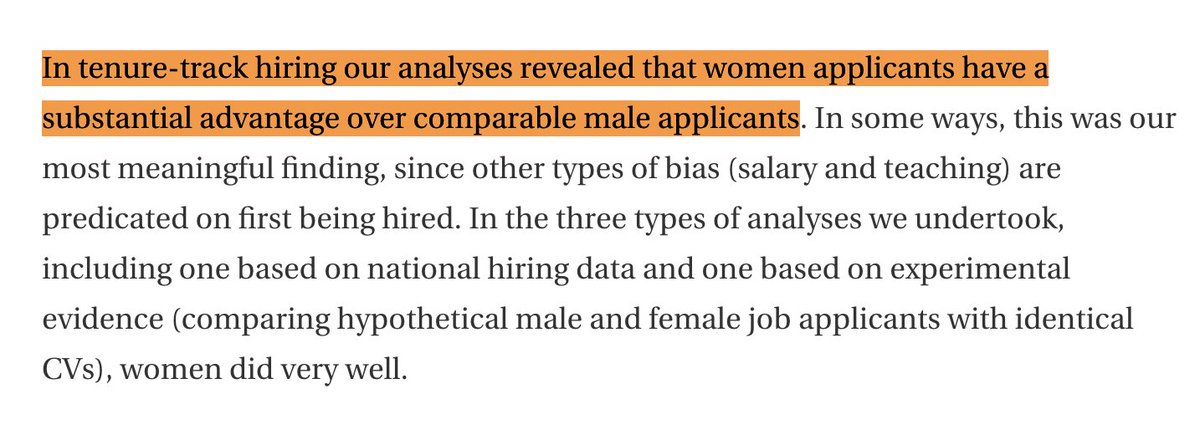According to the Chronicle of Higher Education, it turns out that women have a significant advantage over men in tenure-track STEM hiring. 

Consistently, when women apply, they are more likely to be invited for an interview.
"We found this pro-female hiring advantage in every field in which women are underrepresented, including engineering, physics, computer science, mathematics, and so on, as well as in fields in which they are well-represented, such as biology."

"We found this pro-female hiring advantage in every field in which women are underrepresented, including engineering, physics, computer science, mathematics, and so on, as well as in fields in which they are well-represented, such as biology."

This makes sense. For two decades the NSF has funded large offices at universities devoted in large part to hiring women in STEM (the ADVANCE program).
I've seen several examples of men being cut from consideration for STEM jobs because they're men.
chronicle.com/article/how-se…
I've seen several examples of men being cut from consideration for STEM jobs because they're men.
chronicle.com/article/how-se…
• • •
Missing some Tweet in this thread? You can try to
force a refresh

 Read on Twitter
Read on Twitter




























